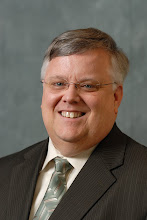The Brawl About Sprawl
- People move to the suburbs because it's a desirable place to live.
- The total number of people living in each dwelling unit is getting smaller.
- Gas is still very cheap by world standards and Americans love their cars.
- The only thing disappearing faster than our farms is the farming life style.
- Technology is devaluing our downtowns and central business districts.
- Global competition is eliminating factory jobs and eroding our manufacturing base.
- Our service economy creates jobs that are less concentrated and more mobile.
- When local government underestimates the cost of growth, residential development on the fringe appears artificially cheap. Yes, even with impact fees.
- Our income tax codes, interest rate deductibility and capital gain treatments promote the ownership of the most expensive home one can afford.
- Municipal competition draws commercial development away from the regional core.
- Our property tax system encourages communities to annex and build only high-priced housing.
- Our rigid zoning ordinances arbitrarily separates people from jobs, shopping, recreation and worship. It's not that Americans don't like to walk, there's no place to walk any more.
These trends are working in the background today to encourage suburban sprawl. But, let me give you one very good reason that we should resist those trends and and choose to build compact communities with balanced growth.
This quote comes from growth economics professor Dr. Jeffrey Dorfman of the University of Georgia. In his powerpoint presentation, he states that "local governments must ensure balanced growth" within their communities. He further concludes that pursuing "sprawling residential growth is a certain ticket to fiscal ruin."
Wow! Please read that last quote again and then let it sink in. "Sprawling residential growth is a certain ticket to fiscal ruin." Franky, Dr. Dorfman has not left us a lot of "wiggle" room in that quote.
The IDNR study identifies the trends that are driving the suburban sprawl phenomenon. And, Dr. Dorfman is telling us exactly what is going to happen to our communities if we follow those trends. I would think that most local officials would want to learn as much as they can about suburban sprawl before they risk ruining their communities. Wouldn't you?
